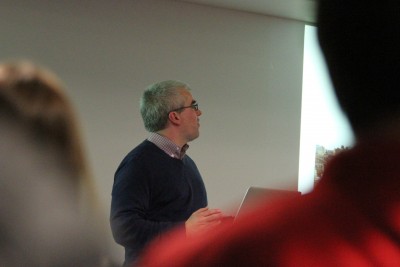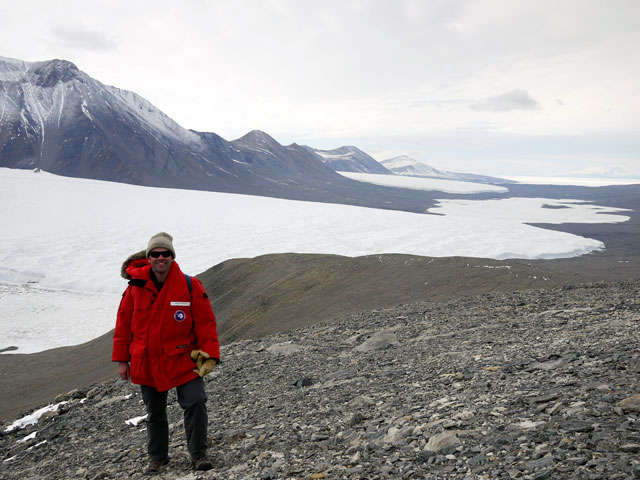As appearing in the Rocky Mountain Collegian
 On March 3, the Public Lands History Center presented the spring American West Program, featuring Adrian Howkins, associate professor in CSU’s Department of History. According to Faculty Program Manager Sarah Payne, the main goal for the program is to “have a conversation between scholars, different communities and students in order to bring as many people together as possible to talk about the major issues that face the American West.”
On March 3, the Public Lands History Center presented the spring American West Program, featuring Adrian Howkins, associate professor in CSU’s Department of History. According to Faculty Program Manager Sarah Payne, the main goal for the program is to “have a conversation between scholars, different communities and students in order to bring as many people together as possible to talk about the major issues that face the American West.”
Howkins teaches global environmental history. His research focuses on the history of polar regions, specializing in Antarctica. Howkins argues that the environmental history of the coldest places on earth have much in common and have been closely connected through matters such as economic development, political change, environmental degradation and global warming.
During his discussion about his new book The Polar Regions: An Environmental History, Howkins acknowledged the fact that throughout history, there have been no perfect solutions to any problems. There’s no such thing as a quick fix for multi-layered issues such as climate change — he said one of the main reasons he wrote the book was to simply begin a conversation.
The Public Lands History Center, which co-sponsored this event with CSU’s School of Global and Environmental Sustainability, has the same goal.
After attending this event, it became clear that CSU students want to join this conversation. Alex Rahi, a senior biochemistry major, explained how he hoped to “get more knowledge” out of Howkins’ speech. He said he is “concerned about how the climate is changing,” but that he doesn’t know much about the topic.

This can be an issue for students. Some may want to get involved, but may feel like they aren’t educated enough to do it.
However, it appears that Howkins and Payne may be accomplishing their goal of starting a discussion amongst students. Among the overflowing crowd was John Krolak, a junior natural resource management major. When asked what stood out to him from the discussion, he said he thought “it was interesting to see a different perspective on environmental conservation.”
Krolak also said he believed the biggest environmental issue we’re facing today is education. He explained how he thinks it’s necessary to “educate people on the impact they have.”
While Howkins’ book focuses mainly on the world’s polar regions, he said many issues the polar regions are facing are similar to issues we are experiencing in Colorado.

Howkins thinks the humility he has learned through working in the polar regions is an important lesson for us all to embrace. He believes this lesson is one of the most important things we can use when “facing some of the environmental challenges of the 21st century.” When we finally accept our own humility, he said, we may be able to see these environmental issues from a new perspective and ultimately, enact real change.
Rachael Johnson and Julianna Cervi contributed to this story.
